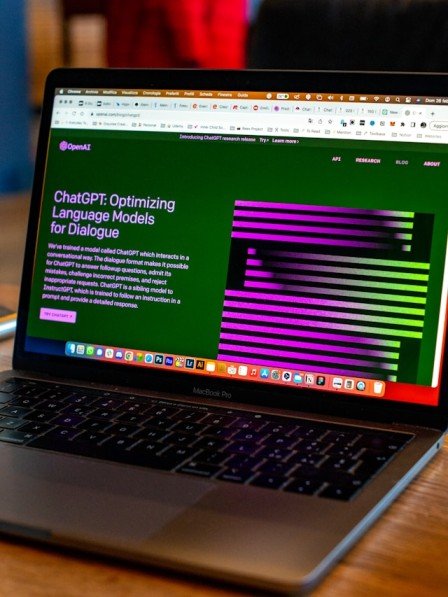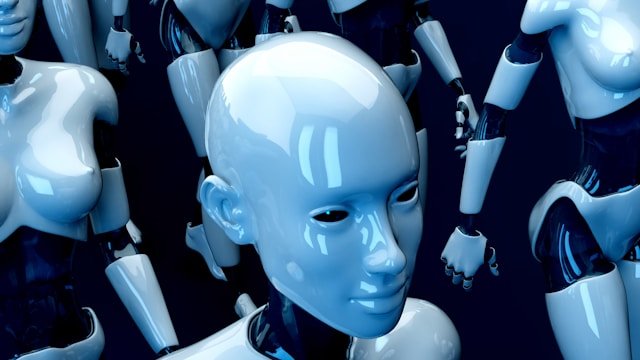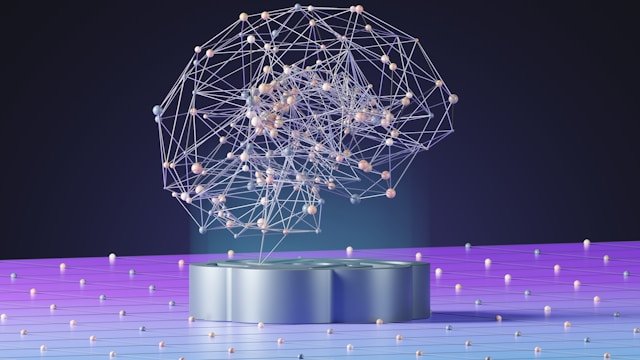Elevate your website to the next level! Find out why AI-powered websites are swiftly becoming the new standard in digital innovation.
Welcome to the Future of Web Design
In today’s fast-paced digital world, the landscape of web design is constantly evolving. Gone are the days of static websites that merely display information. Welcome to the era of AI-powered websites, where innovation and efficiency converge to create an unparalleled user experience.
The Rise of AI in Website Development
Artificial Intelligence (AI) has emerged as a game-changer in website development. From enhancing user engagement to automating complex processes, AI is revolutionizing the way websites are designed, developed, and maintained. Let’s delve deeper into the realm of AI-powered websites and explore how they are setting a new standard in web design.
Understanding AI-Powered Websites
What are AI-Powered Websites?
At their core, AI-powered websites leverage advanced algorithms and machine learning techniques to analyze data, predict user behavior, and deliver personalized experiences in real time. Unlike traditional websites, which rely solely on static content, AI-powered websites are dynamic, adaptive, and responsive to user interactions.
- Learn more about Website Development.
- Learn more about SEO & Digital Marketing.
- Top Rated Website Design in Wales.
- Visit my LinkedIn for more website design tips.
- Visit my Facebook.
Definition and Overview
An AI-powered website is a dynamic online platform that harnesses the power of artificial intelligence to optimize content delivery, improve user engagement, and drive conversions. By leveraging AI technologies such as machine learning, natural language processing (NLP), and computer vision, these websites can intelligently adapt to user preferences, anticipate their needs, and provide tailored recommendations.
How AI is Integrated into Website Development
AI is integrated into website development through various stages, including data analysis, content optimization, and user interaction. From analyzing user behavior to generating personalized content, AI algorithms play a crucial role in shaping the overall user experience. By leveraging AI tools and platforms, web developers can streamline the development process, improve site performance, and enhance user satisfaction.

Benefits of AI-Powered Websites
Enhanced User Experience
One of the key benefits of AI-powered websites is their ability to deliver a highly personalized and engaging user experience. By analyzing user data and preferences in real time, these websites can dynamically adjust content, layout, and navigation to suit individual users’ needs. Whether it’s recommending products, tailoring content, or providing interactive features, AI-powered websites strive to create a seamless and intuitive browsing experience for every visitor.
Improved Performance and Efficiency
AI-powered websites are also known for their superior performance and efficiency. By automating repetitive tasks, optimizing content delivery, and leveraging predictive analytics, these websites can operate more efficiently and effectively than traditional websites. From faster page load times to higher conversion rates, AI-powered websites are designed to deliver superior performance across all metrics.
Personalization and Customization
Perhaps the most significant advantage of AI-powered websites is their ability to deliver personalized and customized experiences at scale. By analyzing user behavior, preferences, and interactions, these websites can tailor content, recommendations, and offers to each individual user in real-time. Whether it’s adjusting product recommendations based on browsing history or customizing content based on demographic data, AI-powered websites strive to make every interaction feel unique and relevant to the user.
The Impact of AI on Web Design
Evolution of Web Design with AI
The evolution of web design with AI marks a significant shift in how websites are conceptualized, designed, and developed. Unlike traditional approaches, which rely on static templates and predefined layouts, AI-powered web design is dynamic, adaptive, and data-driven. By analyzing user data, trends, and patterns, AI algorithms can inform design decisions, optimize content delivery, and enhance user engagement.

Traditional vs. AI-Powered Approaches
Traditionally, web design has been a manual and labor-intensive process, requiring designers to create static layouts and templates from scratch. In contrast, AI-powered approaches leverage automation, machine learning, and predictive analytics to streamline the design process, improve efficiency, and enhance creativity. By analyzing vast amounts of data and generating insights in real-time, AI algorithms can inform design decisions, optimize layouts, and personalize content to suit individual user preferences.
Advantages of AI in Designing Websites
The advantages of AI in designing websites are manifold. From enhancing creativity to improving efficiency, AI-powered design tools offer a wide range of benefits for web designers and developers alike. By automating repetitive tasks, generating design recommendations, and optimizing layouts, AI algorithms can streamline the design process, reduce errors, and accelerate time to market. Whether it’s creating custom layouts, generating color palettes, or optimizing typography, AI-powered design tools empower designers to unleash their creativity and deliver superior results.
Examples of AI-powered Website Features
Dynamic Content Generation
One of the key features of AI-powered websites is dynamic content generation. Unlike static websites, which display the same content to all users, AI-powered websites can generate personalized content in real time based on user preferences, behavior, and interactions. Whether it’s recommending products, tailoring offers, or customizing messaging, AI algorithms can analyze vast amounts of data to deliver relevant and engaging content to each individual user.
Automated Optimization
Another hallmark of AI-powered websites is automated optimization. By leveraging machine learning algorithms, these websites can continuously analyze user data, track performance metrics, and optimize content delivery to improve user engagement and drive conversions. Whether it’s adjusting the layout, testing different variations, or optimizing for search engines, AI algorithms can automate the optimization process to ensure that websites are always performing at their best.
Predictive Analytics
Predictive analytics is another powerful feature of AI-powered websites. By analyzing historical data, user behavior, and market trends, AI algorithms can forecast future trends, anticipate user needs, and recommend personalized actions in real-time. Whether it’s predicting user preferences, forecasting sales trends, or identifying potential opportunities, predictive analytics can help businesses make informed decisions and stay ahead of the competition.

AI Algorithms and Technologies
Exploring AI Algorithms for Website Development
AI algorithms play a crucial role in website development, powering a wide range of features and functionalities. From recommendation engines to natural language processing (NLP), these algorithms enable websites to analyze data, understand user behavior, and deliver personalized experiences in real-time.
Machine Learning
Machine learning is a branch of AI that enables computers to learn from data, identify patterns, and make predictions without being explicitly programmed. In website development, machine learning algorithms can analyze vast amounts of data to identify trends, patterns, and correlations that can inform design decisions, optimize content delivery, and enhance user engagement.
Natural Language Processing (NLP)
Natural language processing (NLP) is another key AI technology that is revolutionizing website development. By enabling computers to understand, interpret, and generate human language, NLP algorithms can power a wide range of features and functionalities, including chatbots, voice assistants, and content recommendation systems.
Computer Vision
Computer vision is a branch of AI that enables computers to interpret and analyze visual information, such as images and videos. In website development, computer vision algorithms can analyze visual content to identify objects, extract information, and deliver personalized experiences based on visual cues.

Tools and Platforms for AI-Powered Websites
TensorFlow
TensorFlow is an open-source machine learning framework developed by Google. It provides a comprehensive ecosystem of tools and libraries for building and deploying AI-powered applications, including websites. With TensorFlow, developers can leverage pre-trained models, build custom algorithms, and deploy AI-powered features with ease.
OpenAI
OpenAI is a research organization dedicated to advancing artificial intelligence in a safe and responsible manner. It offers a wide range of tools and technologies for building AI-powered applications, including websites. From natural language processing to computer vision, OpenAI provides state-of-the-art models and algorithms that developers can integrate into their websites to deliver personalized experiences and automate complex tasks.
IBM Watson
IBM Watson is a cognitive computing platform that enables developers to build and deploy AI-powered applications across a wide range of industries. With Watson, developers can leverage pre-built APIs, tools, and services to add AI-powered features to their websites, such as chatbots, virtual assistants, and personalized recommendations.
Implementing AI in Website Development
Steps to Incorporate AI into Web Design
Incorporating AI into web design requires careful planning, execution, and optimization. From defining goals and objectives to selecting the right tools and technologies, there are several steps involved in the process.
Planning and Strategy
The first step in incorporating AI into web design is to define goals, objectives, and target audience. By understanding the needs and preferences of your target audience, you can identify opportunities for leveraging AI to enhance the user experience and achieve your business objectives.
Data Collection and Analysis
Once you have defined your goals and objectives, the next step is to collect and analyze data. This includes gathering information about user behavior, preferences, and interactions to identify patterns, trends, and opportunities for optimization.
Integration and Testing
After collecting and analyzing data, the next step is to integrate AI into your website and test its performance. This includes selecting the right tools and technologies, implementing AI-powered features and functionalities, and conducting thorough testing to ensure that everything is working as expected.
Overcoming Challenges in AI Implementation
While AI offers many benefits for web design, it also presents several challenges that must be addressed. From data privacy and security to ethical considerations, there are several factors to consider when implementing AI in website development.
Data Privacy and Security
One of the biggest challenges in AI implementation is data privacy and security. With the increasing amount of data being collected and analyzed, it’s important to ensure that user data is handled responsibly and securely to protect privacy and prevent unauthorized access.
Ethical Considerations
Another challenge in AI implementation is ethical considerations. As AI becomes more pervasive in website development, it’s important to consider the ethical implications of AI-powered features and functionalities, such as bias, fairness, and transparency.
Training and Skill Development
Finally, one of the biggest challenges in AI implementation is training and skill development. As AI technology continues to evolve, it’s important for web developers to stay updated on the latest trends, tools, and technologies to effectively integrate AI into their websites.
Case Studies and Success Stories
Real-Life Examples of AI-Powered Websites
To illustrate the power and potential of AI-powered websites, let’s take a look at some real-life examples across different industries.
E-commerce Platforms
E-commerce platforms are leveraging AI to enhance the shopping experience and drive sales. From personalized product recommendations to virtual try-on tools, AI-powered features are transforming the way consumers shop online.
Content Management Systems
Content management systems (CMS) are using AI to automate content creation, optimize SEO, and improve user engagement. By analyzing user behavior and preferences, AI-powered CMS can deliver personalized content recommendations and tailor the user experience to each individual visitor.
Personal Portfolio Websites
Even personal portfolio websites are embracing AI to showcase creativity and stand out from the crowd. From AI-generated design elements to personalized content recommendations, these websites are leveraging AI to create unique and immersive experiences that leave a lasting impression on visitors.
Future Trends and Predictions
The Future Landscape of AI-Powered Websites
Looking ahead, the future landscape of AI-powered websites is filled with exciting possibilities. From continued integration of AI in web design to emerging technologies and innovations, there are several trends shaping the future of website development.
Continued Integration of AI in Web Design
One of the key trends in the future of AI-powered websites is the continued integration of AI in web design. As AI technology continues to evolve and mature, we can expect to see more advanced features and functionalities that enhance the user experience and drive business results.
Emerging Technologies and Innovations
In addition to continued integration, we can also expect to see emerging technologies and innovations that further push the boundaries of what’s possible with AI-powered websites. From virtual reality (VR) to augmented reality (AR), there are several exciting technologies on the horizon that have the potential to revolutionize the way websites are designed and developed.
Predictions for the Future of Web Development
Looking further into the future, there are several predictions for the future of web development that are worth considering. From AI’s role in shaping the digital experience to potential challenges and opportunities, there are several factors that will influence the trajectory of website development in the years to come.
AI’s Role in Shaping the Digital Experience
As AI continues to evolve and mature, it will play an increasingly important role in shaping the digital experience. From personalized recommendations to predictive analytics, AI-powered websites will become more intelligent, adaptive, and responsive to user needs and preferences.
Potential Challenges and Opportunities
Finally, there are several potential challenges and opportunities that lie ahead for AI-powered websites. From addressing ethical considerations to overcoming technical limitations, there are several factors that will shape the future of website development and determine the success of AI-powered websites in the long run.

Conclusion
Embracing the New Standard in Web Design
In conclusion, AI-powered websites represent the new standard in web design. With their ability to enhance user experience, improve performance, and deliver personalized content at scale, AI-powered websites are revolutionizing the way we interact with the digital world.
The Endless Possibilities of AI-Powered Websites
As we look to the future, the possibilities of AI-powered websites are truly endless. From personalized recommendations to predictive analytics, AI-powered websites have the potential to transform the way we engage with content online and create immersive, interactive experiences that delight users and drive results. As businesses and developers continue to embrace AI technology, we can expect to see even more exciting innovations and advancements that further elevate the standard of web design and redefine the digital landscape for years to come.
- Learn more about Website Development.
- Learn more about SEO & Digital Marketing.
- Top Rated Website Design in Wales.
- Visit my LinkedIn for more website design tips.
- Visit my Facebook.


